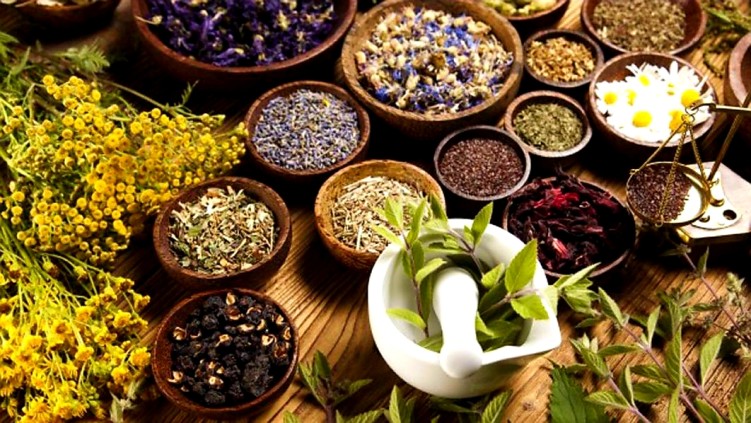Hippocrates, one of the world’s outstanding figures in the history of medicine once said; “Nature itself is the best physician”
Every August 31st Africa together with the world celebrates Africa traditional medicine day; a day that was established by the World Health Organization (WHO) on August 31st, 2000 to recognize the centuries-old contribution of traditional medicine to human health and to modern medicine enacted. As per World Health Organization (2002), “Traditional medicine” is defined as health practices, approaches, knowledge and beliefs incorporating plant, animal and mineral-based medicines, spiritual therapies, manual techniques and exercises, applied singularly or in combination to treat, diagnose and prevent illnesses or maintain well-being[1].
Traditional African medicine is a holistic field involving the use of indigenous medicinal herbs combined with aspects of African spirituality. In Africa, about 80% of the population depends on traditional medicine for basic health needs and in some cases, it is the only available, accessible and affordable health care for many people on the continent[2]. In this case, the important contribution of traditional medicine as a considerable healthcare provider in Africa cannot be overlooked. Even in some countries, promising conventional and curative medical therapies emerged as part of the response to the COVID-19 pandemic; here we can take an example where the government of Cameroon approved two of products as complementary therapies for COVID-19. In that, it can be said that to the highest degree, the pandemic has escalated awareness of the worth of traditional medicine[3].
Africa is referred to as the cradle of mankind and with the rich biological and cultural diversity of the region, African traditional medicine is the oldest and perhaps the most assorted of all traditional treatment systems where the most widespread traditional medicine commonly practiced on the African continent is the use of medicinal plants. In many rural areas of Africa, traditional healers who prescribe medicinal plants are the most accessible and affordable health resource available to the community, and sometimes the only therapy that subsists.
As Africa and the world celebrates this day for the 22nd time, it may be stated that traditional medicine is still one of the most important healthcare systems to this day and is now evolved as an evidence-based health system and serving as a prime element in reverse pharmacology as well as drug discovery process. Nowadays in advanced African countries such as South Africa, Ethiopia, Ghana, and Kenya, and in other countries outside the African continent like China and Korea among others, serious attention has been made to the quality, safety, and efficacy of their herbalism and there is a paradigm shift from non-validated to validated modern herbology which is even accepted by the modern doctors about the magical healing effects of these herbs in diseases like cancer, HIV, Tuberculosis and Covid 19[3]. The current demand for the traditional healing concept of herbalism has become an important bioprospecting tool in the drug discovery of new drug molecules.
Much of the biomedical knowledge (drugs, vaccines and bioresources) are based on natural resources and is closely linked with traditional knowledge and traditional medicine. This knowledge, in turn, has social, cultural and scientific value and is important for many indigenous peoples and local communities, as well as for genetic resources and for scientific knowledge. Historically, traditional knowledge has been the basis for the development of scientific thought and knowledge. To mention a few examples, medications such as aspirin, morphine, quinine, artemisinin, digoxin, vincristine, Taxol, ergotamine, pilocarpine, ephedrine, atropine, certain corticosteroids, are drugs derived from medicinal plants and some of them have been used since ancient times time for the treatment of various health and disease situations as part of the knowledge of traditional medicine. About 50% of the drugs in use are derived from medicinal plants, more than 80% of the world population has made use of some form of traditional knowledge in health as a form of self-care in health and in some countries, 70% of the population uses traditional medicines as a primary health care strategy as an alternative to the modern industrial drugs[4].
Ultimately, it can be said that traditional medicine has made an enormous contribution that cannot be overlooked in the modern medical field hereby being used as an alternative and sometimes the only remedy to some serious medical conditions such as cancer, Tuberculosis, and so much more. In some parts of the world especially in those countries with densely populated rural areas where the population is in high peril of getting easily attacked by diseases, traditional meds are used more frequently than any other therapeutic techniques; in some cases, it is just because people in these cannot afford any other kinds of medicine and sometimes it`s just owing to the fact that these traditional medicines are believed to be efficient with their prodigious curing abilities where according to the 2003 World Health Organization (WHO) report, 80% of Africa’s population depend on traditional medicine from different plants for their health care needs and in treatment of various physical and mental illness. Nearly 4000 medicinal plants have been documented for their various pharmacological activities [4].
About the author
Quentin Olave SHAMI, is a pharmacy student at the University of Rwanda with a passion for writing and research with an aim to help in the development of the public health sector. He is also an active member of the Rwanda Pharmaceutical Students’ Association (RPSA).
References:
- Chaitanya, M. V. , Baye, H. G. , Ali, H. S. , & Usamo, F. B. (2021). Traditional African Medicine. In (Ed.), Natural Medicinal Plants. IntechOpen. https://doi.org/10.5772/intechopen.96576
- African Traditional Medicine Day 2022 | South African Government. (n.d.). South African Government. Retrieved August 31, 2022, from https://www.gov.za/AfricanTraditionalMedicineDay2022
- African Traditional Medicine Day 2021. (2022, August 29). WHO | Regional Office for Africa. https://www.afro.who.int/regional-director/speeches-messages/african-traditional-medicine-day-2021
- The Contributions of Traditional Medicine | BVS MTCI. (n.d.). The TCIM Americas. Retrieved August 31, 2022, from https://mtci.bvsalud.org/en/the-contributions-of-traditional-medicine/

